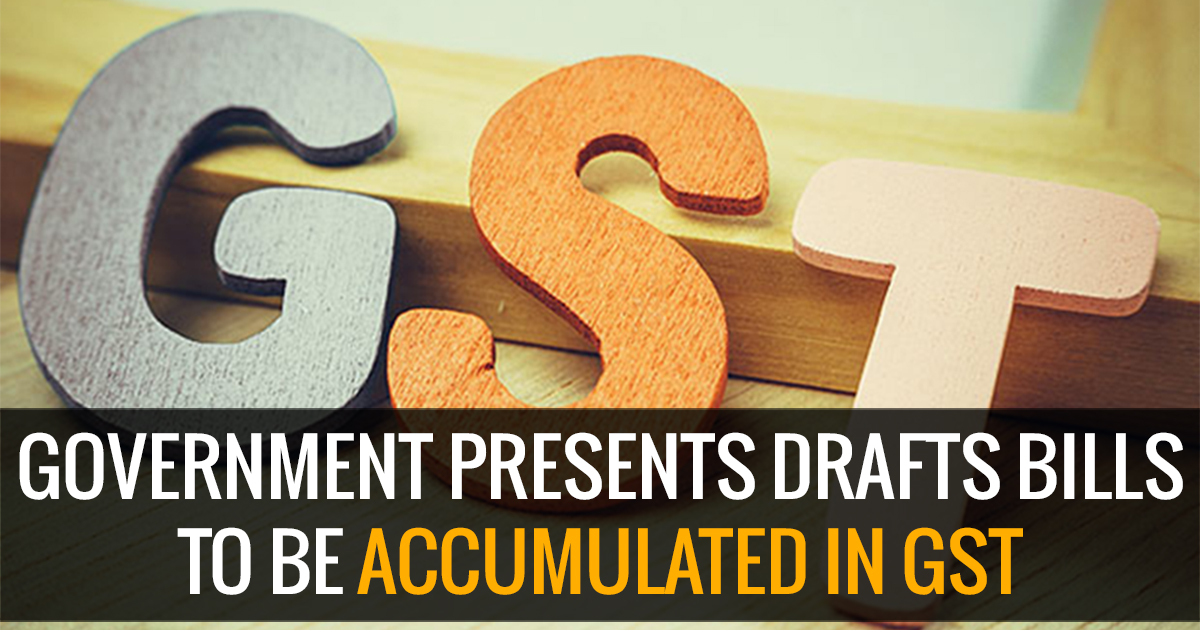
The Union government on Saturday released the drafts of the three supporting legislations for the Goods and service tax (GST). These three draft laws are—the central GST law, the integrated GST law, and the compensation law— which will be talked about in the meeting of the GST Council scheduled on 2-3 December. After a while board gives its gesture, the bills will be presented in Parliament in the progressing winter session. Entry of the bills in the upcoming winter session will be vital for the administration to meet its 1 April execution due date.
According to the arrangements of the draft GST (Compensation To The States For Loss Of Revenue) Bill, 2016, states will be made up for a long time for any misfortunes emerging from a move to this new GST administration. The loss of compensation will be paid quarterly to the states in view of temporary counts. The base year for computing the remuneration figure will be 2015-16. A uniform development rate of 14% for all states will be expected for computing the income because of states and the deficit, assuming any, from a move to GST.
For uncommon class states and the North-Eastern states, the income inescapable by these states by virtue of exemption given by them to particular clause will be incorporated into their incomes while registering compensation. Other than all the indirect expense accumulations of the states including the value added tax, luxury tax, and the entertainment tax, the assessable base will likewise incorporate the income from the 2% central sales tax. The bill likewise accommodates inconvenience of a cess on certain predetermined things and the returns of which will go to a GST compensation fund.
Read Also: Dealer Wise Flow Charts of GST Registration & Return Forms
Toward the end of five years, it has been suggested that half of the non-utilized subsidies in the GST Compensation Fund will be exchanged to the consolidated fund of India, and will be dispersed between the middle and the states according to the equation of the fourteenth finance commission. The remaining half will be conveyed among the states in the proportion of their aggregate incomes from SGST in the most recent year of the transition time frame.
The draft GST law lays out the procedure by which CGST and SGST will be demanded and gathered, the determination of question and the procedure of enlistment and discounts. The draft enables the central government to engage a current power or making another power to guarantee that the lowering of the tax rate of things is passed on to the shoppers by an equivalent decrease in the cost of that specific good and services provided by him. The power will be enabled to force a punishment in the event that the lower duties are not passed on to the customers.
The law additionally requires service tax members to enroll in each state they work—an arrangement unequally contradicted by telecom, banking, and insurance agencies as it will expand their consistency prerequisites. The draft likewise holds the arrangement of forcing a 1% to assess gathered at source on internet business organizations. Internet business organizations should gather this sum from their provider and record relating returns.
Recommended: How to File GST Return Online in India
The draft additionally has arrangements to permit exports of goods and services and supply of goods and services to a SEZ be delegated zero evaluated supply—circumstances in which the tax on input supplies is zero.
The draft IGST law accommodates the way between inter-state deals will be burdened. The draft says that the IGST rate can’t be more than 28%—the most elevated duty concerned by the GST council. Respecting request from states, the draft law additionally proposes to engage state government tax authorities in specific cases to go about as executives of the demonstration, other than central tax powers.
Pratik Jain, leader, indirect tax at PWC India, said that “Provisions relating to anti-profiteering, while aimed at protecting the consumers, might be difficult to implement. Many concerns of the services sector, particularly with respect to single centralized registration and clarity in terms of place of supply rules, have not been adequately addressed.”
